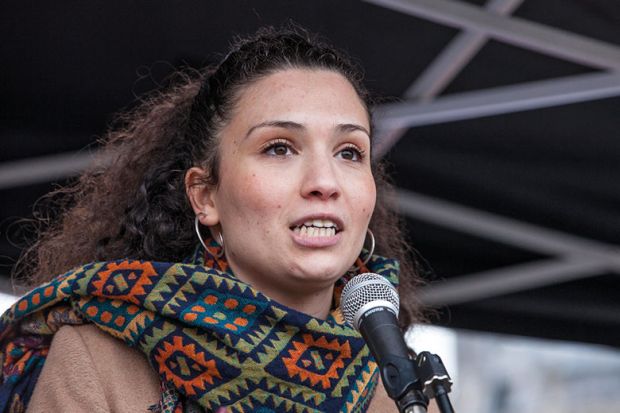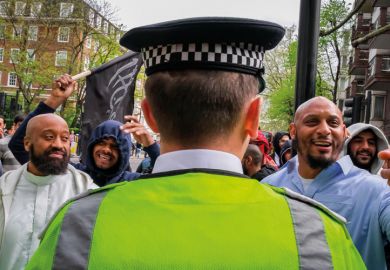The National Union of Students is braced for a new wave of political attacks after electing radical left-wing activist Malia Bouattia as president, one of its leaders has said.
Ms Bouattia’s shock victory at the NUS’ national conference in Brighton last week – beating current president Megan Dunn by 372 votes to 328 – led to vehement criticism of the student movement.
Labour MP Wes Streeting, a former NUS president, tweeted that the organisation was “lost” and “no longer represents students well”, while several Jewish student society leaders have criticised Ms Bouattia’s “past rhetoric” on the Israel-Palestine issue.
There have already been growing calls from within students’ unions at some universities to split from the NUS because of Ms Bouattia's election and the way that votes at the conference are currently conducted.
Ms Bouattia, the first black female president of the NUS, and the first Muslim, has also faced allegations of anti-Semitism regarding a comment made in 2011 that the University of Birmingham – her alma mater – was “something of a Zionist outpost”.
She addressed these claims in her hustings speech on 20 April, saying that she knew “too well the damage done by racism and persecution” as her family had been forced to flee war-torn Algeria when she was a child.
“I have a long track record of opposing racism and discrimination in all its forms and actively campaigning against it,” she later said, adding that she recognises that “Jewish students on campuses and elsewhere continue to face anti-Semitism”.
Ms Bouattia declined to be interviewed by Times Higher Education, but Sorana Vieru, who was re-elected as vice-president (higher education) at the conference, said that she expected the NUS to face many more attacks over the next 12 months.
“The election has moved the NUS to the left, so we expect more of a reaction and more threats as a result of our perceived [militancy],” Ms Vieru said.
Ms Bouattia’s strong support for the controversial advocacy group Cage while she was black students’ officer is also likely to invite further criticism.
Prime minister David Cameron claimed in July 2015 that the NUS’ links with Cage – which describes itself as “an independent advocacy organisation working to empower communities impacted by the War on Terror” – brought “shame” on the union, despite Ms Dunn’s insistence that it did not work with the group.
However, Ms Bouattia has frequently shared a platform with Cage outreach director Moazzam Begg, the former Guantanamo Bay prisoner, on the Students Not Suspects campus tour against the Prevent anti-terrorism agenda, from which Ms Dunn withdrew the union’s support over its links to Cage.
“[The] NUS Black Students [campaign has] that policy [regarding Cage], and I guess we have disagreed on tactics regarding Prevent,” said Ms Vieru, who suggested that a vote was needed at executive level to resolve the issue.
Despite the disagreement within the NUS over Cage, the union had made “massive progress” in fighting the Prevent rules imposed on universities as part of last year’s Counter-Terrorism and Security Act, Ms Vieru said.
“People are talking about it on and off campus much more…and the campaign [against Prevent] has got a lot more vocal,” she said. “Our campaign has got a lot of profile and has obviously rattled a few cages.”
Register to continue
Why register?
- Registration is free and only takes a moment
- Once registered, you can read 3 articles a month
- Sign up for our newsletter
Subscribe
Or subscribe for unlimited access to:
- Unlimited access to news, views, insights & reviews
- Digital editions
- Digital access to THE’s university and college rankings analysis
Already registered or a current subscriber?







